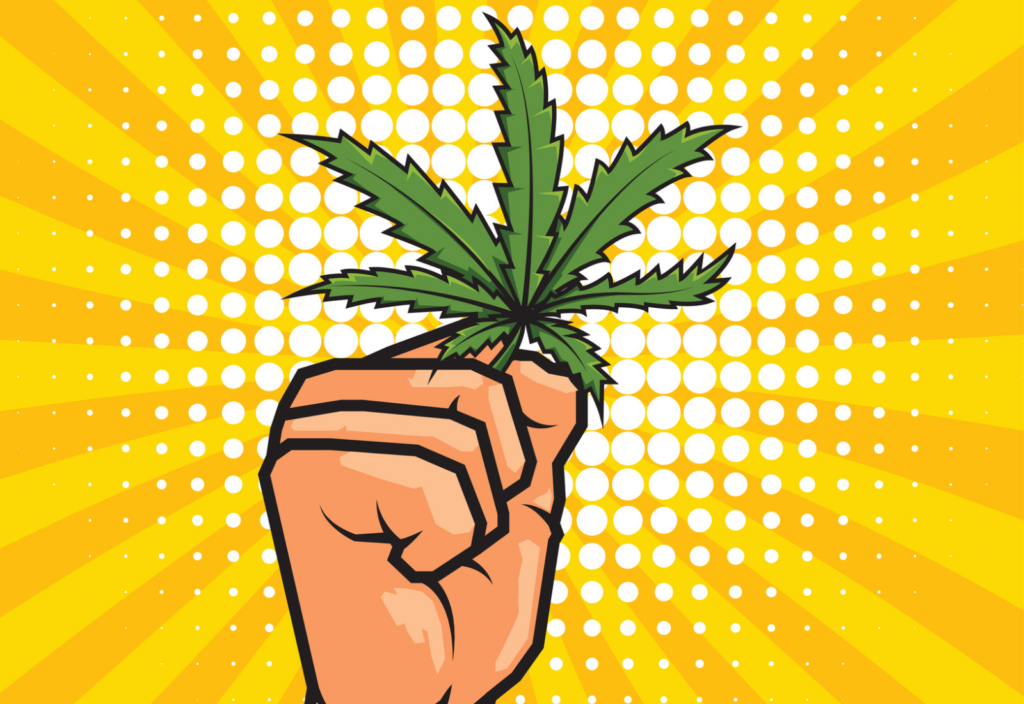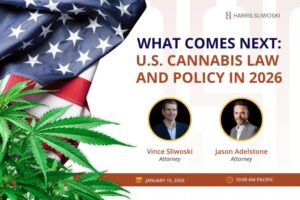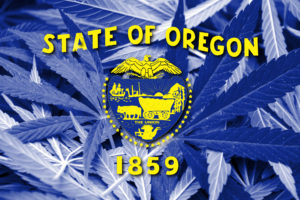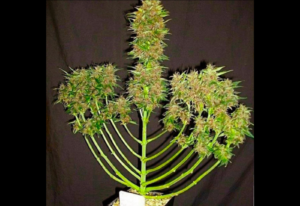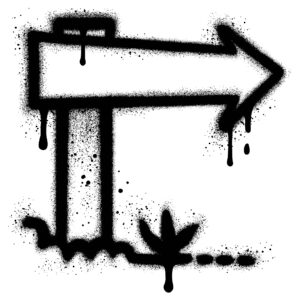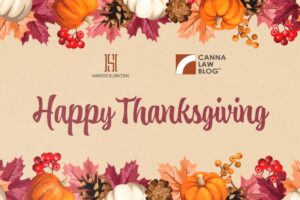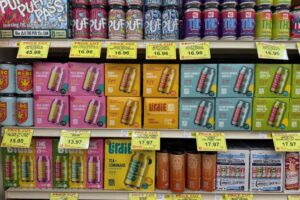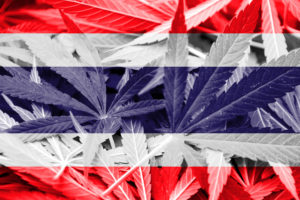Could the First Amendment’s free speech protections offer a lifeline to cannabis brands hauled into court for trademark infringement for using parody trademarks? In some cases, it might.
For readers unfamiliar with the First Amendment to the United States Constitution, it reads:
Congress shall make no law respecting an establishment of religion, or prohibiting the free exercise thereof; or abridging the freedom of speech, or of the press; or the right of the people peaceably to assemble, and to petition the Government for a redress of grievances.
(Our emphasis.) There is a tension between the First Amendment’s free speech protections and trademark rights. Strictly speaking, my inability to legally call my coffeeshop “Starbucks” limits my freedom of speech, even if there is a good rationale for imposing such a limit.
As the Court of Appeals for the Ninth Circuit (“Ninth Circuit”) noted in an infringement case brought by the owner of the Jack Daniel’s trademarks, U.S. trademark law “seeks to strike the appropriate balance between the First Amendment and trademark rights.” Only where likelihood of confusion exists between trademarks does the law curtail the First Amendment’s free speech protections in the context of trademarks.
Nonetheless, “where artistic expression is at issue,” this approach is insufficient to protect the “public’s interest in free expression.” Back in 1989, in a case brought by Ginger Rogers, the Second Circuit adopted what is known as the Rogers test. Under this test (as explained in a later case), if free speech interests are implicated, a plaintiff claiming trademark infringement must show that the infringing mark “is either not artistically relevant to the underlying work or explicitly misleading as to the source or content of the work”
What does this have to do with cannabis brands, you may be wondering. Well, arguably, many of the cannabis trademarks that are getting their owners into trouble are artistic expressions. This in turn means that, under the Rogers test, the use of these cannabis trademarks will only constitute infringement of more established brands under very limited circumstances.
Wait, you may be thinking, are you saying that punny names like Zkittlez and Budway are somehow an “artistic expression,” entitled to free speech protections? Possibly. Consider the Ninth Circuit’s views on the Bad Spaniels squeaker toy, the subject of the Jack Daniel’s lawsuit, which it described in this way:
The toy is roughly in the shape of a Jack Daniel’s bottle and has an image of a spaniel over the words ‘Bad Spaniels.’ The Jack Daniel’s label says, ‘Old No. 7 Brand Tennessee Sour Mash Whiskey;’ the label on the Bad Spaniels toy instead has the phrase ‘the Old No. 2, on your Tennessee Carpet.’ A tag affixed to the Bad Spaniels toy states that the ‘product is not affiliated with Jack Daniel Distillery.’
In the Ninth Circuit’s view, the Bad Spaniels toy, “although surely not the equivalent of the Mona Lisa, is an expressive work.” The key consideration is whether a work is “communicating ideas or expressing points of view.” And the Bad Spaniels toy “communicates a ‘humorous message’ … by ‘juxtaposing the irreverent representation of the trademark with the idealized image created by the mark’s owner.'” This “humorous message” is entitled to free speech protections and does not constitute a trademark infringement.
The Ninth Circuit’s reasoning above could be applied to some of the parody trademarks used by some cannabis brands. As we previously noted, “it seems that the most common reaction to these names is amusement,” meaning that they are successfully communicating a “humorous message.” It follows that the use of these trademarks also results in expressive works, protected by the First Amendment against infringement claims except in very limited circumstances.
As we have before, we draw a distinction between parody trademarks and the improper use of an existing trademarks. Looking at this through the lens of the Rogers test, it is hard to argue that the use of the Zkittlez trademark is “explicitly misleading as to the source or content of the work.” On the other hand, a product (not made by Wrigley) bearing Skittles trademarks is explicitly misleading as to its source and should be kept off the market.
This all said, cannabis brands should not lose sight of the fact that their products are not dog toys. Courts might view free speech issues differently in cases where the products bearing the allegedly infringed trademarks are unlawful at the federal level. Moreover, other circuits might have different views on the trademark law issues at stake, irrespective of the cannabis angle. And to be clear, free speech protections will not do anything for cannabis brands unable to register marks that describe federally unlawful products. Still, cannabis brands at the pointy end of a trademark infringement lawsuit might still want to look at the Constitution for help, just in case.










